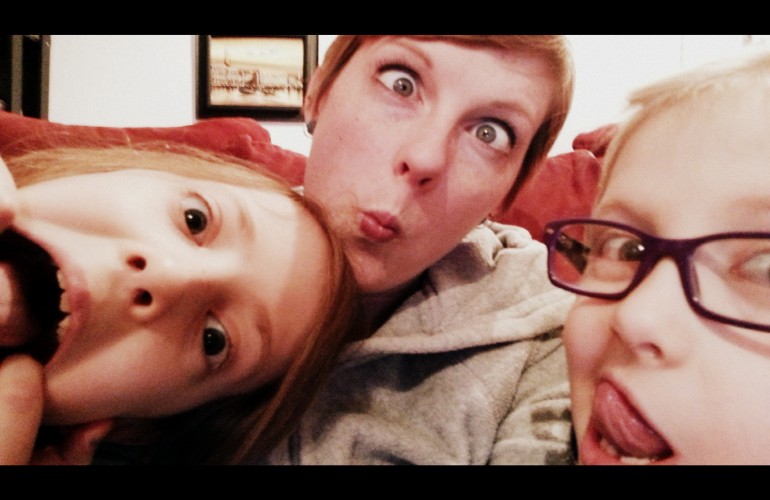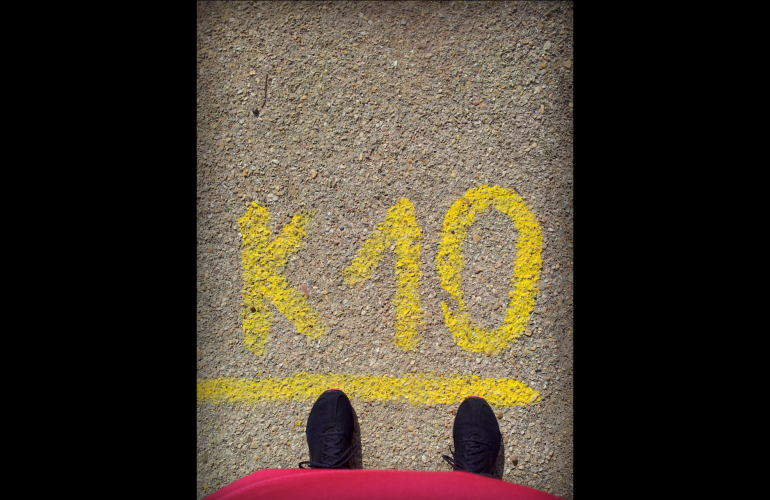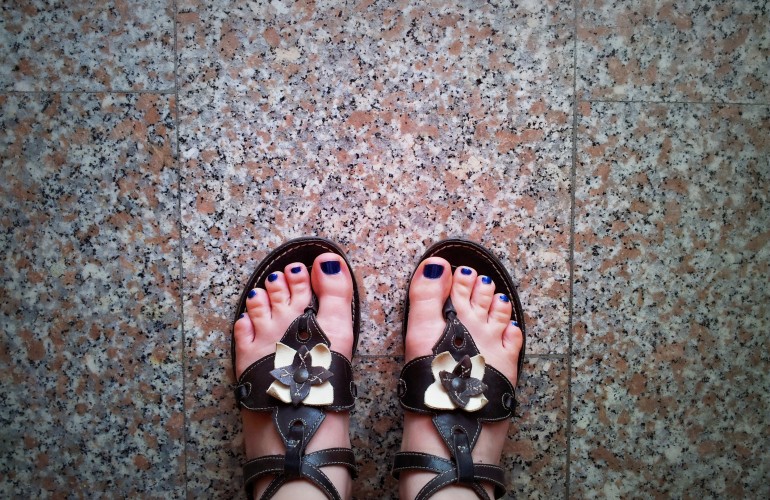When I was a girl, I believed I was fundamentally wrong. The exact term that rings in my memory is “an abomination to God.” An abomination. I didn’t have any context for that word outside of the Bible—in fact, I’m not sure I do even now—but I understood that its five syllables shook with the intensity of God’s disgust.
I gave proud looks.
I was deceitful.
I pushed back against rules.
I’d memorized verses declaring each of those things an abomination, a detestable affront to God, and over time, the word worked its way past my actions and straight into my identity. I didn’t try to be proud, see. I couldn’t help it; my entire theology was based on micromanaging myself toward perfection, and any time that I succeeded, my natural reaction was pride. I didn’t have many grounds to feel good about myself, but if I was managing more holiness than someone else in a certain area, my mind latched onto smugness like a drowning cat to a piece of driftwood. Pride wasn’t my choice; it just was. And that made me an abomination.
The same went for my deceitful and rebellious streaks. Lying and hiding were coping mechanisms for me, my body’s only strategy for self-defense. Rebellion was likewise instinctual; I never flouted rules, but I endlessly wrestled with the ones that suffocated me, trying to find loopholes through which to breathe. I was born with a question mark tattooed on my soul, and I believed the only reason God didn’t smite me for it was because Jesus had him on a choke chain.
There is a fiercely painful dissonance in believing that the one who made you is repulsed by who you are. I don’t think this is a sensation unique to my experience either. Mainstream Christianity teaches that we are born with a “sin nature” that God cannot abide, even though God is the maker and creator of all, and that we must perform series of steps to effectively hide our depravity from him before it is used as grounds to condemn us. I have heard thousands of sermons over the years to that effect.
Believing this way, that God considered who-I-was an abomination, stamped the dark impression of guilt onto my every waking moment. Not even those times of smugness when I was particularly rocking at righteousness could blunt my impression that God was gagging in my direction. I ricocheted endlessly between self-loathing and pride, my psyche working overtime to protect me from my theology. I’m sure I don’t need to spell out that this was a nightmarish way to live.
All the same, I had it easy in one regard: Nobody ganged up with God against me. If anything, I was praised by other Christians for striving so hard after holiness. Not once in my life has a group of people discriminated against me over those parts of myself that the Bible calls abominations. If I have ever defended my identity, it’s because I’ve wanted to, not because I’ve been under attack. I find instant acceptance in most Christian circles despite the ways in which my habits diverge from accepted biblical standards, and fellow believers’ open arms have strengthened the faith that I might have abandoned long ago without their support.
Not everyone is so privileged.
Among all the “abominations” listed in the Bible, from telling lies to eating shrimp to stirring up conflict to shedding innocent blood, the evangelical Christian community has picked out one on which to concentrate its outrage. You already know which one. You can’t help but know it. It’s on Saturday night’s news and on Sunday morning’s PowerPoint and on legislative drawing tables around the world. It’s the mountain on which we are willing to let others die.
This week, evangelicals became so incensed over World Vision, a humanitarian aid organization, expanding its hiring policy to allow married gay Christians that thousands of children lost their sponsorships. Let me put that in other words: People who claim to follow Jesus stopped providing nutrition, education, and health care to impoverished children in order to make a theological point.
Just before getting into bed last night, I saw that World Vision had reversed its decision, caving after two short days of uproar. The news settled on my heart like a boulder, and I lay awake for a long time exploring the contours of that weight. Being a Christian has never made me so sad.
I know what it’s like to feel that God despises my identity but not what it must feel like to have millions of fellow humans joining in. I can’t imagine having even just one person so repulsed by who-I-am that he or she would withdraw help from a child and call it my fault. I can’t imagine trying to reconcile my faith with my orientation only to have a nation of heterosexuals shouting from every available platform that I was choosing deviance. I can’t imagine having my heart and soul and talents rejected outright by the Christian community due to an inflexible interpretation of a few select Bible verses.
Can you imagine it?
I’m positive that the sorrow I feel today is a pale shadow of the pain my LGBT brothers and sisters are experiencing this week… this month… this lifetime during which they will be dragged again and again into a religious culture war in which everyone loses. Other writers have already made the points that bear repeating this week (see Rachel Held Evans, Jamie Wright, Jen Hatmaker, Erika Morrison, Nish Weiseth, and Kristen Howerton), and I know better than to think I can singlehandedly change popular doctrine. I do think it’s important though that I lend my voice to the discussion—if nothing else, so that my own LGBT friends will know that they’re not the brunt of every Christian’s theology.
I am grateful all the way to my bone marrow that my view of God did not stay rooted in that oppressive past. I still read the Bible but with very different eyes. Jesus is real to me now—unconditional love is real to me now—and through the clarity of that love, everything I once thought about religion is up for grabs. Except the view of a single human soul as an abomination. That’s not up for grabs. That’s just straight-up gone.








